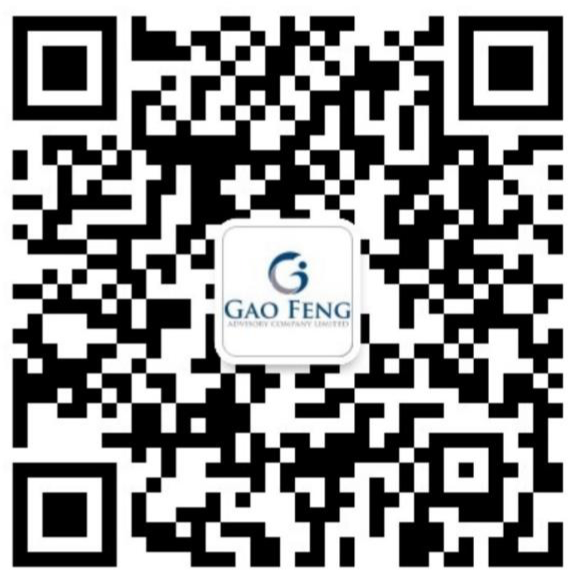China Daily | Push For 'Unified National Market' Gains Pace
Push For 'Unified National Market' Gains Pace As New Guidelines Consolidate High-level Opening

By Edward Tse
2022-04-13
A recent article authored by Gao Feng Advisory CEO Dr. Edward Tse was published by China Daily on April 13.
The Chinese government's recent guidelines for accelerating the building of a unified national market envision discontinuation of local protection and market fragmentation to unblock key sticking points that weigh on the growth of the economy. This is a part of a wide-ranging push for an effectively regulated, competitive and fully open market across the country.
The new guidelines unveiled on April 10 will allow entrepreneurs to fully exploit advantages of China’s ultra-large domestic market, which will not only accelerate the building of a high-standard market ecosystem and expand opening-up to the outside world but shall also push in-depth reforms and high-quality development.
A unified national market will discontinue local protection and facilitate smooth flow of goods and services throughout the country. Moreover, it is expected to enhance efficiency and expand the scale of China’s domestic market.
The key initiatives are implementation of a unified market access system and development of a unified domestic market for productivity factors and resources to provide access to both domestic and foreign businesses, promote fair competition, and enhance predictability and stability of rules governing the market.
The way we understand it, Beijing has been working on such policies for some time, and official announcement of this policy must be viewed from a holistic standpoint.
While China has been undergoing reform and opening-up for more than four decades, many remnants from its old economic system still linger. Fragmentation of the market into many localities governed by local rules and regulations that offer protection for the local has been the norm. While progress has been made over the years in removing bottlenecks that impede growth, China, strictly speaking, has not become a unified market so far.
With the changes in the environment and the readiness of internal drivers, it is now possible and desirable to launch this new policy. Additionally, global geopolitics, the Russia-Ukraine conflict, the pandemic and other external factors have had an impact on China’s role in global business and trade has become somewhat uncertain.
In order to generate the needed growth in its economy, China needs to ensure stability in its internal business and trade, or in the Chinese way of saying, the “internal circulation”.
China is taking concrete steps to accelerate the building of a unified domestic market that is efficient, rules-based and open and encourages fair competition amid pressures emanating from a complicated and grim external environment and COVID-related apprehensions.
This is the country’s latest move to deepen market-oriented reforms and inject more dynamism into market entities, to propel sustainable growth of both domestic and foreign businesses.
In order to build a strong and unified domestic market, it is essential to remove market entry barriers for domestic and foreign companies, build an open market system and promote both internal and external movement of goods and services.
With the fast development of technology in China in recent years, it is now possible to leverage technologies such as big data, artificial intelligence and blockchain technology to break down barriers between local areas of interest.
In this context, companies and localities will need to think about their respective development strategies based on their competitive advantages, and not some pre-defined positional advantages.
For a unified market to take place properly, the government needs to make sure that the playing field is level and fair for all. Competition should be welcome and the rules of the game should be fair and transparent.
To this end, we can expect even larger market access for private-sector and foreign companies. This will foster further competition and innovation in China.
The idea of a unified national market has been in the works for some time. In fact, over the years, many foreign companies have questioned whether China was a national market or a series of local markets.
In the Chinese way, Beijing had begun experimenting with this policy at a regional level, in clusters as the Yangtze River Delta, the Jing-Jin-Ji (Beijing-Tianjin-Hebei) region and the Guangdong-Hong Kong-Macao Greater Bay Area. Experience from these pilot areas formed the basis for the new national policy.
Another goal is to reduce the cost of transactions by facilitating the market-oriented allocation of production factors and helping circulation of goods and services.
China will further unify the basic systems and rules, including those for property rights protection, market access, fair competition and social credit.
Facilities and platforms in different sectors, including logistics, deal information and transaction platforms, should be seamlessly connected across the country. A unified market will be established for various production factors, including land, labor, capital, technology, data and energy.
In addition, unified standards for goods and services will be set up. Supervision, regulation and law enforcement will be more standardized with the aim of breaking down local protection and regional barriers to ensure open and fair competition.
Representatives of some companies we spoke to mentioned that they could not quite get the reasons for and substance of this new policy. This is at least partly due to the way the policy was presented.
Some people thought this new policy is taking China back to its State-planning approach. While the State will certainly play an important role under this new policy, it will be largely the private-sector enterprises and foreign companies who will take part in the new game. Rules-based competition will become more prevalent and the overall efficiency of the entire Chinese economy should improve.
Overall, the building of a unified nationwide market plays a decisive role in balancing resource allocation, promoting a more level playing field and revitalizing growth across the country as a whole.
Along with the recent efforts at cracking down on monopolies, unfair competition, local protectionism and opening-up of industries, the new policy is also expected to create a more level playing field with a more unified and clear approach for both local and foreign players. The guidelines’ call for opening-up will go a long way to improve not only Chinese but also global supply chains and innovation chains for greater international economic activity.
About the Author
Dr. Edward Tse is founder and CEO, Gao Feng Advisory Company, Adjunct Professor of School of Business Administration at Chinese University of Hong Kong, Professor of Managerial Practice at Cheung Kong Graduate School of Business, and Adjunct Professor at the SPACE program of University of Hong Kong. He is also a member of Global Future Council on China at the World Economic Forum, as well as a member of advisory boards for private equity and venture capital companies. He started his strategy consulting career at McKinsey’s San Francisco office in 1988 before returning to Greater China in the early 1990’s. He became one of the pioneers in China’s management consulting industry, by building and running the Greater China operations of two leading international management consulting firms (BCG and Booz) for a period of 20 years. He has consulted to hundreds of companies, investors, start-ups, and public-sector organizations (both headquartered in and outside of China) on all critical aspects of business in China and China for the world. He also consulted to a number of Chinese local governments on strategies, state-owned enterprise reform and Chinese companies going overseas, as well as to the World Bank and the Asian Development Bank. He is the author of several hundred articles and five books including both award-winning The China Strategy (2010) and China’s Disruptors (2015), as well as 《竞争新边界》 (The New Frontier of Competition), which was co-authored with Yu Huang (2020). He holds a SM and a SB in Civil Engineering from the Massachusetts Institute of Technology, as well as a PhD and an MBA from University of California, Berkeley.


Gao Feng Advisory
Gao Feng Advisory Company is a professional strategy and management consulting firm with roots in China coupled with global vision, capabilities, and a broad resources network
Wechat Official Account:Gaofengadv
Shanghai Office
Tel: +86 021-63339611
Fax: +86 021-63267808
Hong Kong Office
Tel: +852 39598856
Fax: +852 25883499
Beijing Office
Tel: +86 010-84418422
Fax: +86 010-84418423
E-Mail: info@gaofengadv.com
Website: www.gaofengadv.com
Weibo: 高风咨询公司
Previous:CGTN | Boao Forum 2022
